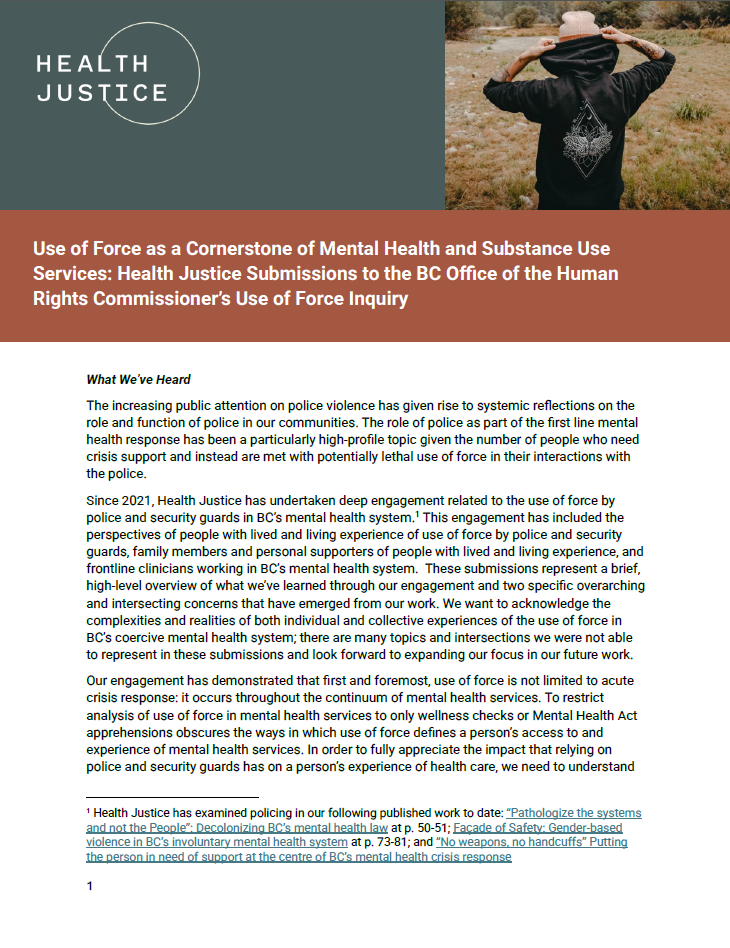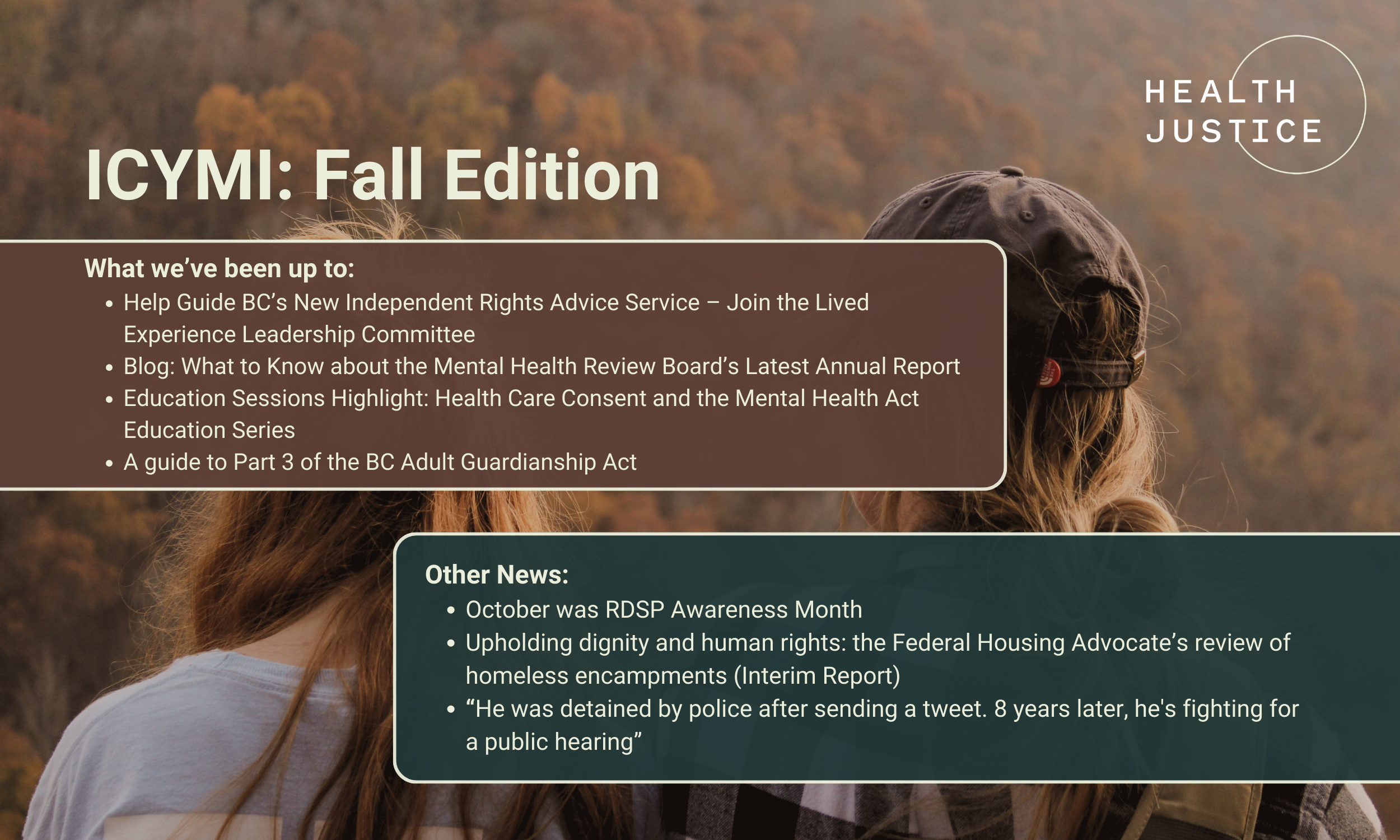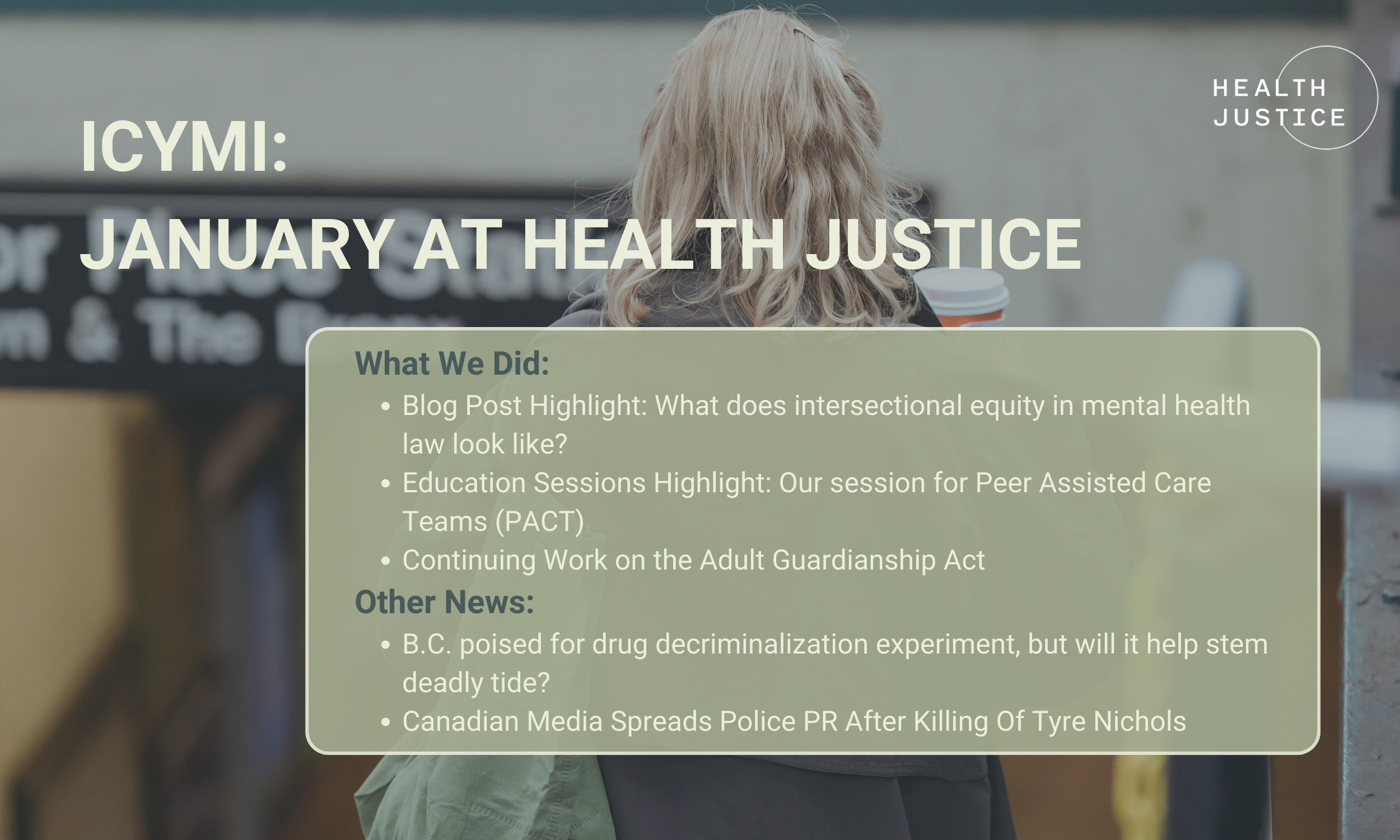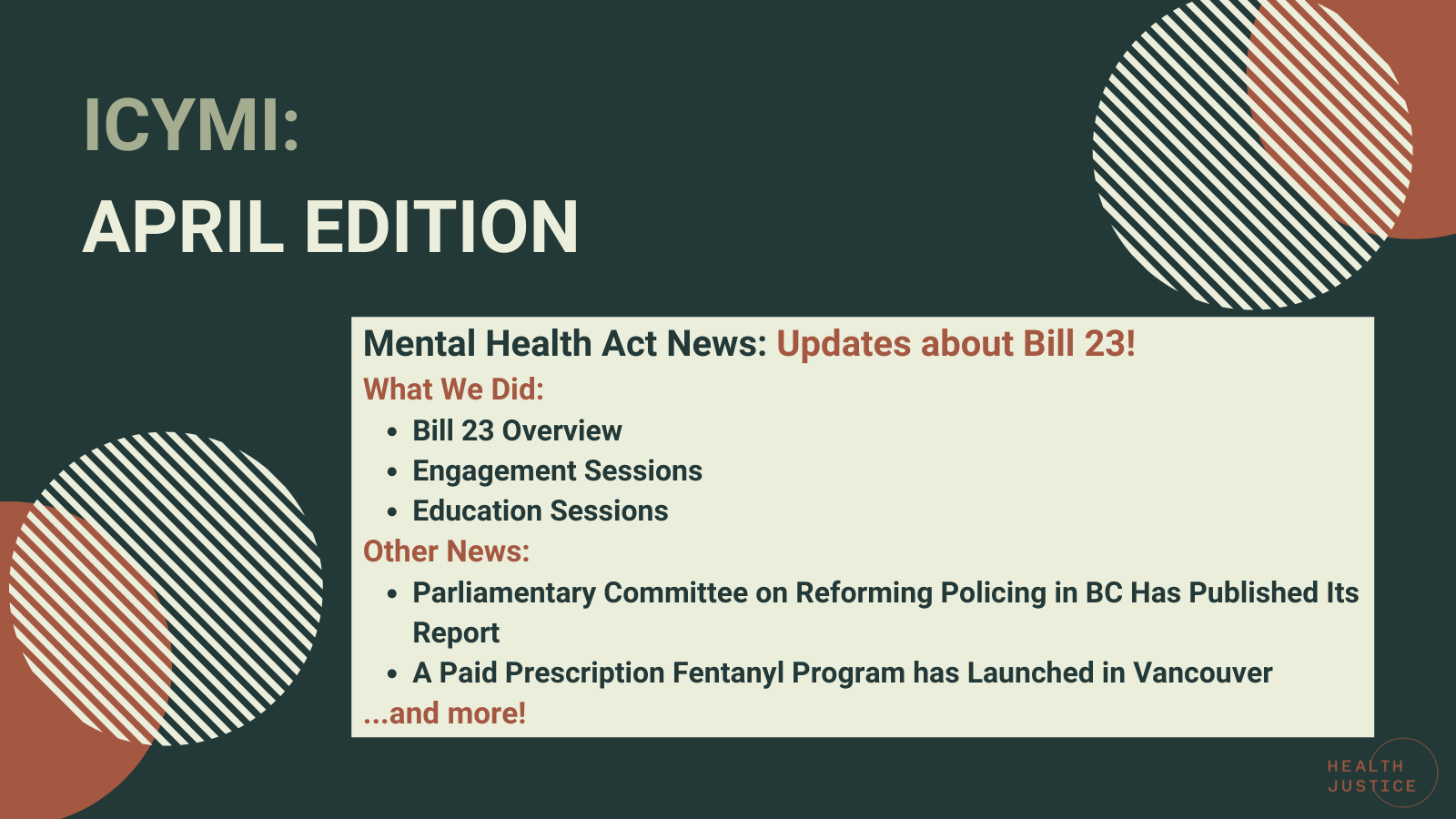
Decreasing the Mental Health System’s Reliance on Police & Security
The BC Mental Health Act authorizes police to apprehend and transport someone to a doctor for examination if the person is acting in a way that’s likely to endanger safety and appears to have a mental disorder.
Many facilities that detain people under the Mental Health Act also contract with private companies that provide security guards that can be involved in restraining and intervening in other ways with involuntary patients. Relying on police and security guards to respond to mental health or substance use health distress can be traumatic and risky. Police and security are often responding to crises where skills and services are needed that they are not equipped for and should not be expected to provide.
Other jurisdictions in the world have created civilian-based teams who respond to mental health and substance use health crises with specialized expertise in counseling, non-violent de-escalation techniques, basic first aid, and cultural safety in a person-centered approach. There are many other ways that the BC Mental Health Act could be reformed to reduce reliance on police and security guards and provide safeguards to ensure that any police or security interventions promote safety and dignity to the greatest extent possible.
Engagement, Research and Results
As this part of our project completes, we will publish the results of our engagement and research to support and inform conversations about how we can improve the role of police and security in the Mental Health Act in BC. To learn more about our engagement and research methods click here.
Below is the submissions Health Justice made to the Legislative Assembly’s Special Committee on Reforming the Police Act which summarizes some of our engagement and research.
Follow our socials to know when the results of this project have been published.
Health Justice’s recommendations for policing reform in BC
Our submissions to the Special Committee on Reforming the Police Act
Our submissions to the BC Office of the Human Rights Commissioner’s Use of Force Inquiry





